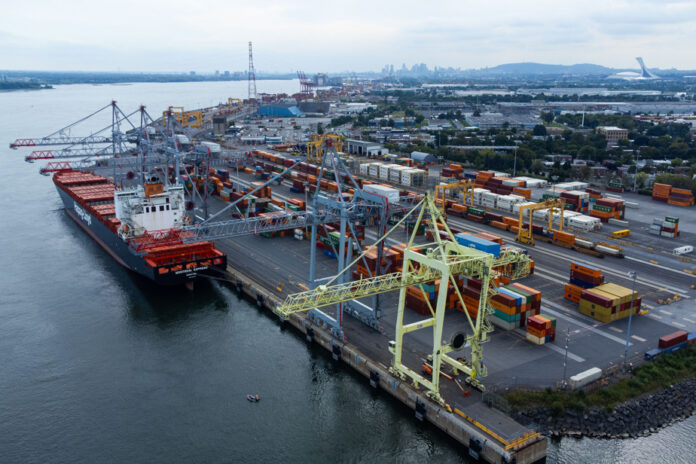Longshore workers at the Port of Montreal want to obtain salary increases of at least 20% over four years and full job security after three years. For its part, their employer wishes to “adjust” the number of employees who benefit from their security and wants an employment contract guaranteeing union peace until the end of the decade.
This is what emerges from the demands of the Union of Longshoremen of the Port of Montreal, affiliated with the Canadian Union of Public Employees (CUPE), and the Association of Maritime Employers (AEM), obtained by La Presse. The documents constitute the starting points for both sides in negotiations that began last month.
While the issue of modernization was among the sticking points leading to the strike that paralyzed the Port of Vancouver for 13 days last July, it does not appear to be at the heart of the employer’s demands, says Jean-Claude Bernatchez, full professor of labor relations at the University of Quebec at Trois-Rivières. He analyzed all the requests.
“We are in a model of concessional negotiations,” believes the expert. The AEM hopes that working conditions can better adjust to a context of economic decline while a recession, according to several economists, is on the horizon. »
Professor of operations and logistics management at HEC Montreal, Jacques Roy is of the same opinion on the issue of automation.
“I don’t see any plans to have robots or self-guided vehicles like in Rotterdam to replace skidders,” he explains. That doesn’t mean it won’t happen one day. »
The talks between the two parties are taking place under the sign of the slowdown at the port of Montreal. From January to August, the volume of containers passing through the metropolis’s docks showed a decline of 14.5% compared to last year. Taking into account liquid and solid bulk – such as cereals, fuel, kerosene to fuel aircraft engines – the decline in overall traffic is 3.9%.
CUPE is advocating for annual wage increases of 5% or adjusted for inflation, whichever is higher. In 2023, the average salary of a longshoreman at the Port of Montreal was approximately $150,000. In Canadian ports, they are the only ones to benefit from job security, a mechanism that guarantees them a salary even if they do not work when the cargo volume is insufficient.
According to the union document, we want the period to access “full job security” to go from nine to three years, a request which risks not passing through the AEM, according to Professor Jacques Roy. For its part, the Association would like to limit the number of longshoremen who benefit from this security. However, there are no further details about this request.
After the uncertainty of recent years due to strikes in summer 2020 as well as spring 2021, AEM is offering a six-year employment contract in the hope of establishing some industrial peace . It remains to be seen whether the representatives of the longshoremen will accept this request.
We are currently unaware of AEM’s salary demands. In its requests, the employer indicates that “the position relating to other clauses with a monetary impact will be communicated later”. In an interview with La Presse on September 13, union representative Michel Murray described this approach as an employer “cheap shot”.















